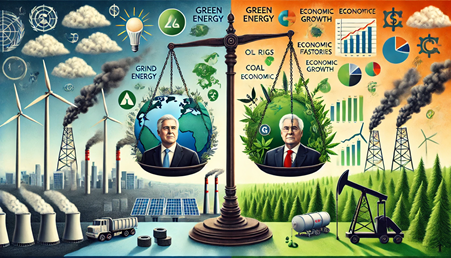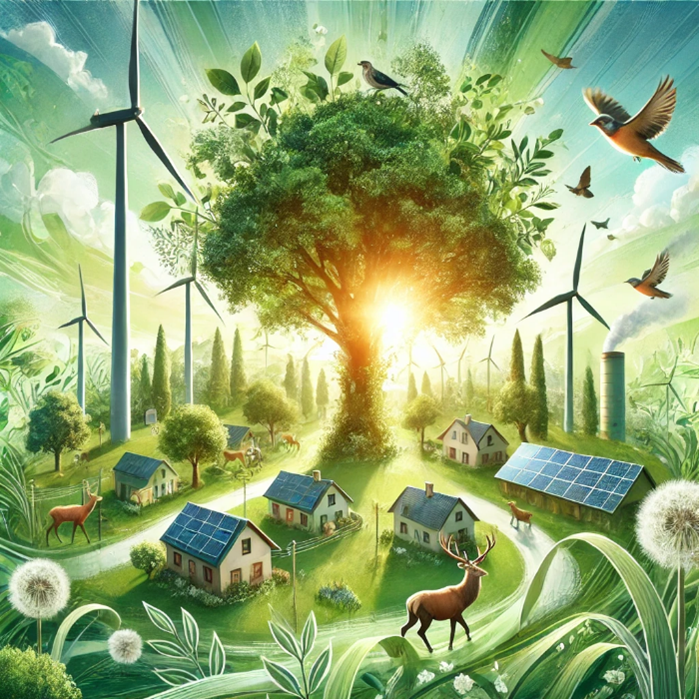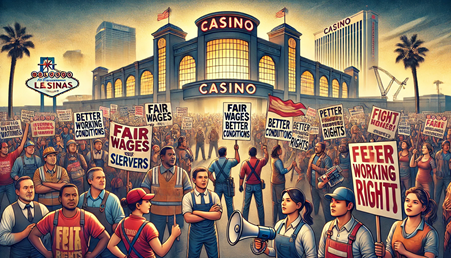How do political ideologies influence climate policies?

How do political ideologies influence climate policies?
by Sebastian 03:22pm Jan 02, 2025

How do political ideologies influence climate policies?
How do political ideologies influence climate policies?
Political ideologies have a profound influence on climate policies, shaping how governments perceive the problem of climate change, prioritize actions, and implement solutions. Here’s a breakdown of how different political ideologies can influence climate policy:
1. Conservative Ideologies
Emphasis on Free Markets and Limited Government:
Conservatives, particularly in capitalist economies, often argue for market-driven solutions to address climate change, rather than large-scale government intervention. They may support innovation and technological advances that allow industries to reduce emissions without heavy regulation.
Climate change action might be framed as the responsibility of businesses and individuals rather than the government, and there is often skepticism towards comprehensive, top-down regulations like carbon taxes or emissions standards.
Climate Change Skepticism:
In some conservative circles, there is a degree of climate change skepticism or outright denial. This can lead to resistance against climate policies, as conservative politicians may question the urgency of the issue or deny the role of human activity in causing global warming.
Focus on Economic Growth:
Conservative governments may prioritize economic growth, job creation, and energy independence over environmental concerns. This can lead to opposition to policies that restrict the use of fossil fuels, even if those fuels contribute to climate change.
Energy and Resource Development:
Conservative governments may advocate for the continued use of fossil fuels (coal, oil, natural gas), arguing that energy security and economic stability depend on these resources. They may push back against policies that promote renewable energy, framing them as disruptive to the economy or jobs in traditional energy sectors.
2. Liberal/Progressive Ideologies
Government Intervention and Regulation:
Liberals or progressives tend to favor stronger government intervention in addressing climate change, believing that regulation and policy mandates are essential to drive emissions reductions. They are more likely to support robust climate action frameworks such as carbon taxes, cap-and-trade systems, and renewable energy subsidies.
These ideologies typically support policies that regulate emissions from industries, increase the use of renewable energy, and establish stricter environmental standards.
Focus on Social Equity:
Progressive climate policies often prioritize the social equity implications of climate change, recognizing that marginalized communities are often most affected by environmental degradation. They may advocate for "just transition" policies that ensure workers in fossil fuel industries are supported during the shift to a green economy.
Global Cooperation:
Liberals and progressives tend to view climate change as a global issue that requires international cooperation. They are more likely to support international climate agreements like the Paris Agreement and advocate for strong global commitments to mitigate emissions and help developing nations transition to sustainable energy.
Renewable Energy and Green New Deal:
Progressive governments typically push for the development of renewable energy sources (solar, wind, geothermal, etc.) and the transition away from fossil fuels. They are more likely to invest in green technologies and infrastructure to create a low-carbon economy, as well as support programs like the "Green New Deal," which focuses on tackling climate change while creating green jobs.
3. Libertarian Ideologies
Minimal Government Role:
Libertarians generally believe in minimal government intervention in the market and society, which translates into skepticism about climate change policies that impose regulations or taxes on businesses. They may argue that the government should not be in the business of regulating emissions, as market forces and voluntary actions by businesses can be more efficient and effective.
Emphasis on Individual Responsibility:
Libertarians may promote voluntary actions by individuals and businesses, such as market-driven innovation in clean technologies, rather than top-down mandates. They tend to argue that the free market, through competition and consumer demand, will lead to better environmental outcomes.
Decentralized Approaches:
Libertarians may support decentralized, local solutions to climate change rather than national or global policies. For example, they might advocate for the development of green technologies by private companies or local communities rather than government-led efforts to impose widespread changes.
4. Green/Ecologist Ideologies
Urgency and Radical Action:
Green parties and ecologist movements are among the most proactive in advocating for comprehensive, immediate action on climate change. They view climate change as an existential crisis and argue for deep, systemic changes to the economy and society to achieve environmental sustainability.
They often support aggressive policies like carbon taxes, drastic reductions in carbon emissions, and a rapid transition away from fossil fuels to renewable energy. Green ideologies tend to call for significant changes to consumption patterns, transport systems, and industrial practices.
Environmental Justice:
Green movements typically emphasize environmental justice, advocating for policies that address the unequal impacts of climate change on disadvantaged communities, Indigenous peoples, and low-income populations.
Anti-Growth and Anti-Capitalist Perspectives:
Some green movements oppose the idea of "endless growth" as a model for prosperity, arguing that the capitalist economic system is inherently incompatible with environmental sustainability. They often propose alternative models of development focused on sustainability, de-growth, and social well-being.
5. Populist and Nationalist Ideologies
Protectionism and Energy Independence:
Populist or nationalist political movements often prioritize national sovereignty and economic protectionism. They may oppose international climate agreements or global climate action efforts, viewing them as threats to national interests or sovereignty.
These movements may favor energy policies that promote national energy independence, such as increasing domestic fossil fuel production (oil, coal, natural gas), while resisting international climate regulations they perceive as infringing on national decision-making.
Climate Change Denial or Minimization:
In some populist circles, climate change is downplayed or denied outright, especially if it is seen as a tool used by elites or global organizations to impose control. This can lead to strong resistance to environmental regulations and climate action in favor of preserving jobs in traditional industries.
Nativist Environmentalism:
Some nationalist ideologies promote environmental policies that protect national borders and resources but may downplay broader global efforts. These policies could emphasize conservation and sustainable resource use within national borders while being less focused on international cooperation.
6. Socialist and Marxist Ideologies
Anti-Capitalism and Redistribution:
Socialist or Marxist ideologies argue that climate change is deeply tied to capitalist exploitation of natural resources and labor. They view the climate crisis as a consequence of profit-driven systems and seek systemic changes that go beyond just reducing emissions.
These ideologies support the idea of public ownership of key industries, including energy, to facilitate a transition to a more sustainable and equitable economy. They may advocate for a planned economy where resources are distributed in a way that ensures environmental sustainability and social equity.
Focus on Workers and Communities:
Socialists often push for policies that protect workers' rights during the transition to a green economy, ensuring that displaced workers in fossil fuel industries are provided with retraining and support. They emphasize that climate solutions should serve the needs of both the planet and working-class communities.
Conclusion
Political ideologies shape climate policies by determining the degree of government involvement, the prioritization of economic vs. environmental concerns, and the approach to global cooperation. While conservative ideologies may favor market-based solutions and minimal regulation, progressive and green ideologies call for stronger government intervention and radical action. Libertarian perspectives typically oppose heavy regulation, while socialist ideologies seek systemic changes to the economic system to address climate change. The political landscape thus heavily influences how climate change is framed and the specific actions that are taken—or resisted.






